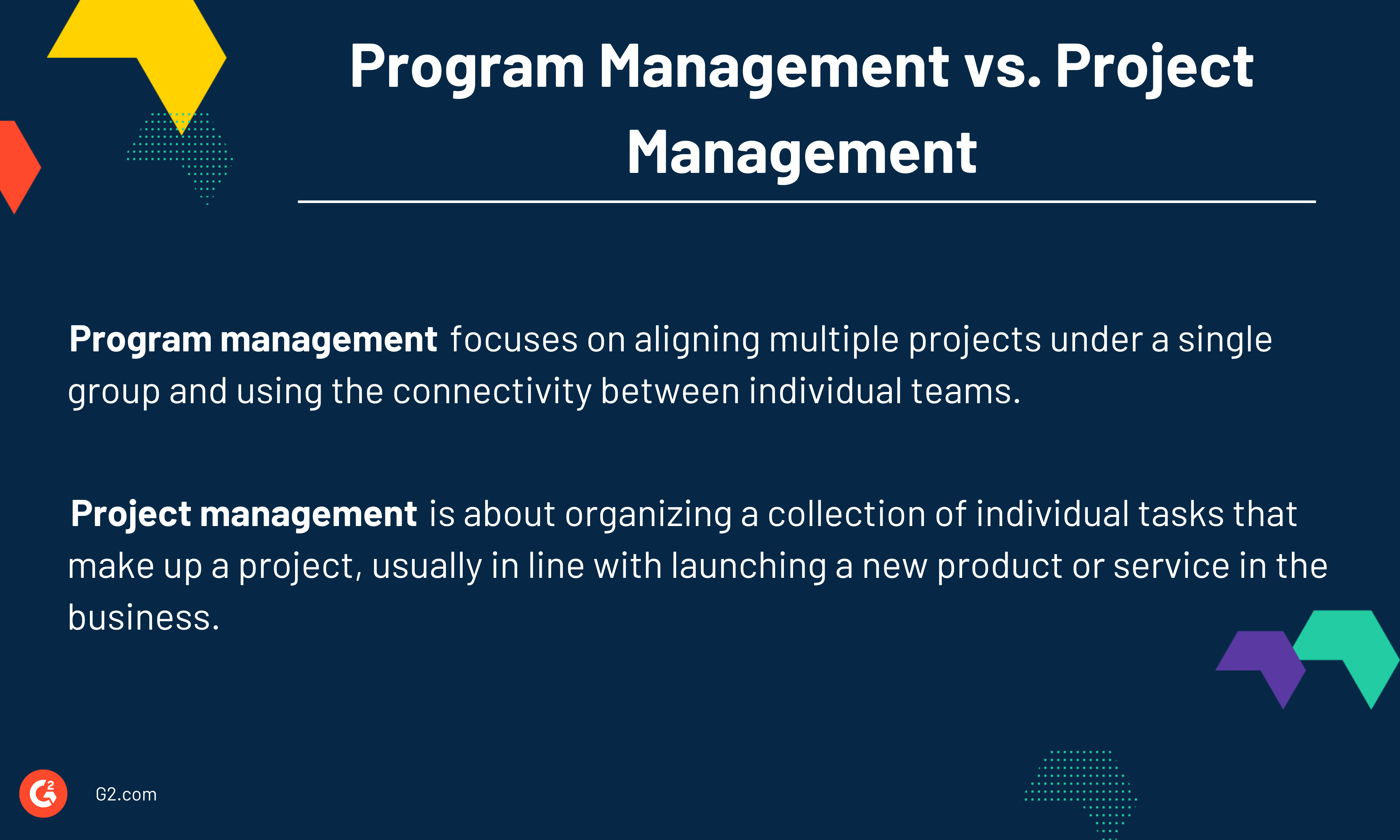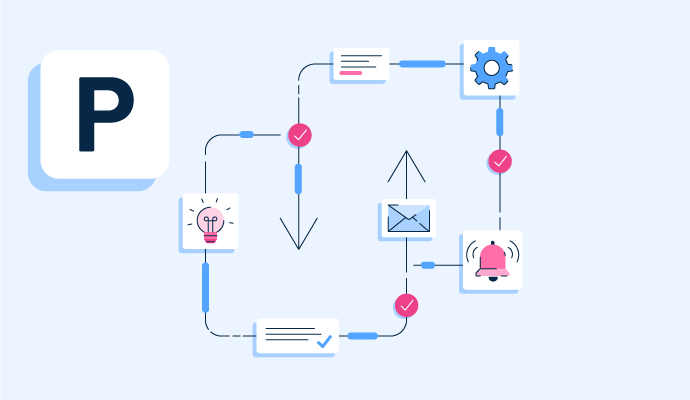What is program management?
Program management is a process of managing multiple individual projects relating to similar organizational objectives and performance linked together under one group.
The aim of arranging projects together this way is to be more consistent and visible across teams and departments within a business. While each has its own goals and associated tasks, every related project contributes to the company's overarching goals. With program management, these goals can be more easily measured under the same umbrella.
Using project collaboration software, program managers can oversee every part of the process in a central location to strategize, delegate, and track work in progress.
Basic elements of program management
How projects are grouped together under a program depends on the industry and type of projects in process. But throughout the program management process, four elements are always considered:
- Governance and ownership. Knowing who oversees the program management process is essential for success. This should be determined at the outset, with program manager responsibilities clearly outlined to measure progress. At this early stage, stakeholders will likely be more involved in creating the program before handing authority over to a manager.
- Management. Good oversight is a must. Management and governance or ownership may be completed by the same people within the team or a hierarchy can be assigned to spread out the workload.
- Budgeting and finances. While every project team should have a good understanding of their own financial situation for their project, knowing how the company is spending as a whole across all projects is a critical part of program management. Budgets must be continually tracked and evaluated to ensure that no one overspends.
- Infrastructure. Grouping similar projects under a program aligns work for everyone on the team. Leadership should build infrastructure around these projects to share resources and better control each project within the program based on why they’ve been organized together.
Benefits of program management
Even with the most dedicated project managers, running several projects at once can easily become a challenge. With program management, businesses are able to:
- Organize projects to work toward a unified goal. Program managers are tasked with seeing the big picture view, while project managers focus specifically on the individual assignment they’re working on with their team. By being able to connect projects under a single group, these individual objectives can be more easily tied to company goals and key results.
- Allocate resources more effectively. When projects are connected, it becomes much easier to see which ones lack needed resources. If another project has these, sharing across different project teams becomes much simpler without disrupting existing workflows and progress.
- Balance risk and opportunity. Every project brings its own risks and potential, so these are magnified when program management practices are brought in, simply because all of these possibilities are seen at once. But knowing all hazards at the same time benefits project managers. Their holistic view of all current projects means they can see where risks should be mitigated, while also spotting gaps and opportunities that teams too close to a project might miss.
Best practices for program management
Like any good management approach, it’s important to remember everyone is working toward the same outcome. To run a successful program management process, it’s beneficial to:
- Understand where every project fits. The whole point of program management is to make work easier for everyone. Good program managers should have a strong understanding of what each project team is working on, why, and what their goals are. This shapes the project management process and means managers can find overlap between projects that align with the company's strategic goals.
- Encourage teams to share their thoughts. Every program manager should aim to develop an environment where team members feel empowered and encouraged to share their thoughts on their individual projects and the others under the program. Knowledge sharing, discussions around concerns or risks, and brainstorming ideas encourage a more diverse search for solutions to problems.
- Use dedicated program management tools. Managing several programs at once can quickly become a logistical nightmare. Using specialized tools that give easy access to project documentation can keep everything on schedule and makes communication between team members more transparent.
Program management vs. project management
Some may confuse program management with project management, but the two differ.

While projects may contribute to a company’s strategic goals thanks to their completed outputs, program management is dedicated to supporting the overarching aggregate outcome of all projects.
Simplify and align business projects and boost internal communication with team collaboration software.

Holly Landis
Holly Landis is a freelance writer for G2. She also specializes in being a digital marketing consultant, focusing in on-page SEO, copy, and content writing. She works with SMEs and creative businesses that want to be more intentional with their digital strategies and grow organically on channels they own. As a Brit now living in the USA, you'll usually find her drinking copious amounts of tea in her cherished Anne Boleyn mug while watching endless reruns of Parks and Rec.




















